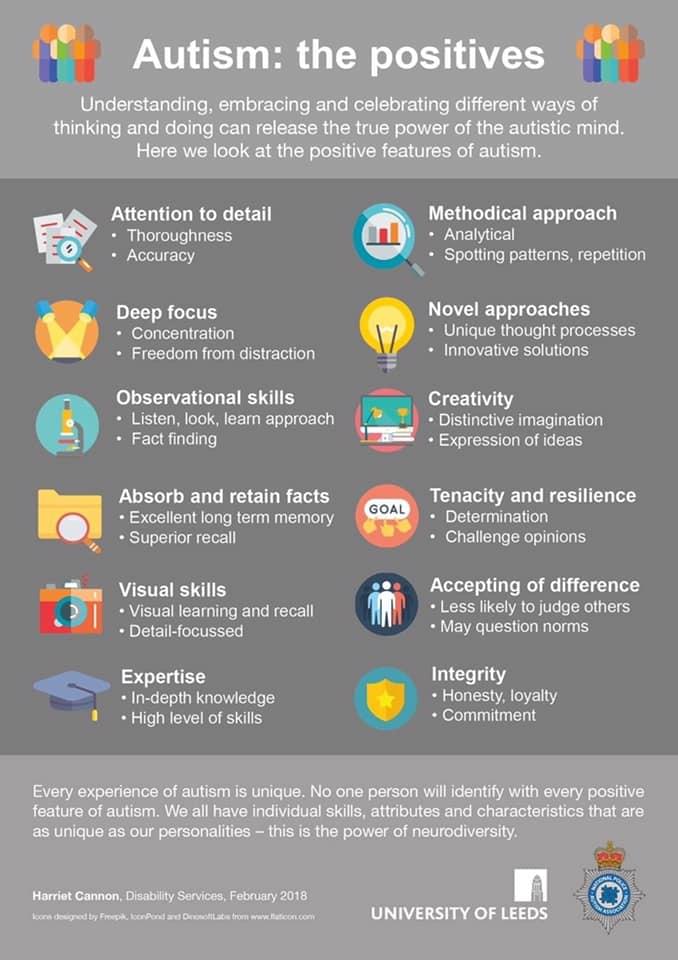
Autism the Positives
Being Aspicious
I love this from the University of Leeds. I have had to read a lot of material on Asperger’s, making notes as I went, in order to fit the condition to my own life history and experience, and fit my own personality to the criteria and symptoms. It was essential research to clarify and make sense of my own life experience. But there were an awful lot of negatives and not many positives. The Asperger’s “symptom” sheets pretty much labour the same attributes: trouble with social communication and interaction; lack of eye contact; difficulties in making friends; obsessive interest in narrow subject areas. I listed all of this and more in the behavioural ‘checklist’ and will be saying much more on them. There’s an important point to establish from the first, though: whilst there is truth in all of these symptoms, that truth is not necessarily negative. A strengths based approach reveals that what are often perceived to be handicaps to actually be abilities and capacities, and powerful ones at that.
Understanding, embracing, and celebrating different ways of thinking and doing can release the true power of the autistic mind. Here we look at the positive features of autism.
Attention to detail:
Thoroughness
Accuracy
Methodical approach:
Analytical
Able to identify patterns
Repetition
Deep focus:
Concentration
Freedom from distraction
Novel approaches:
Unique thought approaches
Innovative solutions
Observational skills:
Listen, look, learn approach
Fact finding
Creativity:
Distinctive imagination
Expression of ideas
Absorb and retain facts:
Excellent long term memory
Superior recall
Tenacity and resilience:
Determination
Challenge opinions
Visual skills:
Visual learning and recall
Detail focused
Accepting of difference:
Less likely to judge others
May question norms
Expertise:
In-depth knowledge
High level of skills
Integrity:
Honesty, loyalty
Commitment
Every experience of autism is unique. No one person will identify with every positive feature of autism. We all have individual skills, attributes, and characteristics that are as unique as our personalities – this is the power of neurodiversity.
Harriet Cannon, Disability Services, February 2018 University of Leeds

